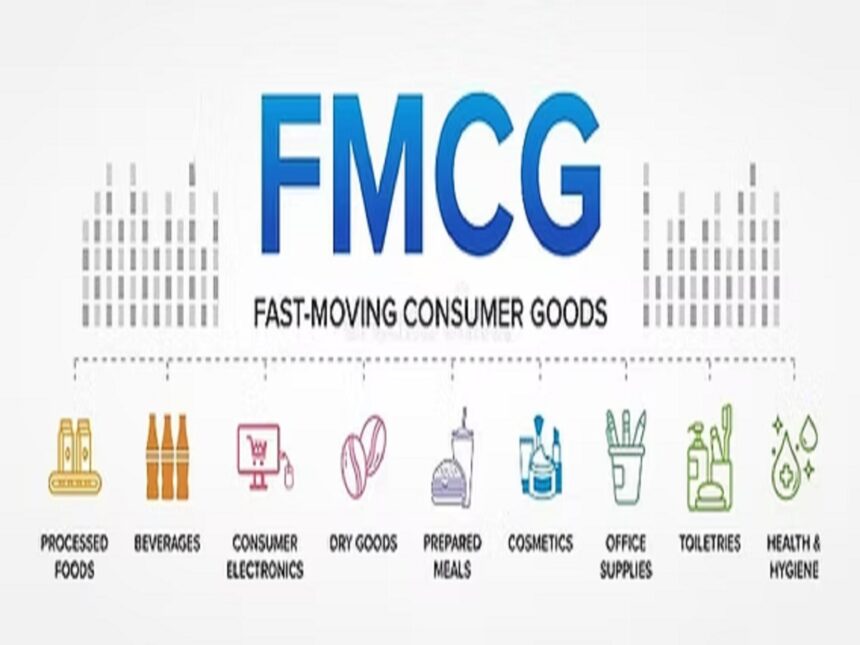The Federal Government can introduce tax credits and targeted incentives for fast-moving consumer goods (FMCG) companies and cement manufacturers to significantly reduce food prices and lower the cost of housing across Nigeria.
A leading pharmacist and Chairman of ST. Racheals Pharmaceutical Nigeria Limited, Akinjide Adeosun, made the call at an event in Lagos to mark his 57th birthday.
The celebration, themed “Thanksgiving in Freedom”, featured philanthropic gestures including the unveiling of a food bank and distribution of food packages to low-income workers such as cleaners and security personnel.
According to Adeosun who is also the founder of the Akinjide Adeosun Foundation (AAF), Nigeria’s current economic realities—characterized by soaring food inflation, high transport fares, and unaffordable rents—require deliberate government action that goes beyond short-term palliatives.
“There is no country in the world without some form of subsidy. Government must review its reforms to address hunger, transport costs and housing challenges. These are the three biggest anguish facing Nigerians today,” Adeosun told participants.
Nigeria’s inflation rate stood at 21.88 percent in July 2025, with food inflation climbing to over 22.74 percent, according to the National Bureau of Statistics (NBS). Staples such as rice, bread, and vegetable oil have more than doubled in price over the past two years, eroding purchasing power and worsening poverty.
Adeosun highlighted the direct link between nutrition and health, warning that food insecurity undermines productivity and life expectancy. He stressed that reducing food prices through fiscal support to producers is a more sustainable approach than ad hoc relief measures.
“Feeding, transport and rents must be prioritised. These three factors determine not only the wellbeing of families but also the health of the entire workforce,” he said.
Nigeria’s FMCG sector, valued at over $40 billion, is dominated by companies such as Flour Mills of Nigeria Plc, Nestlé Nigeria Plc, Unilever Nigeria Plc, Nigerian Breweries Plc, and Dangote Group. The sector contributes significantly to GDP and employment but faces rising input costs due to foreign exchange volatility, high energy costs, and logistics challenges.
Similarly, the cement industry is central to Nigeria’s housing ambitions. Cement prices have risen from N3,500 per 50kg bag in 2021 to above N9,000 in 2025, driven by currency devaluation and energy costs. This has worsened the country’s estimated 28 million housing deficit, making affordable housing out of reach for many Nigerians.
Adeosun argued that tax credits, energy rebates, and crude oil pricing discounts for these industries would ease production costs, leading to lower consumer prices.
While commending President Bola Tinubu for the politically difficult decision to remove fuel subsidies, Adeosun criticized the lack of preemptive cushioning measures. He noted that higher fuel prices have triggered cost-push inflation across sectors.
To address this, he proposed a 20 percent crude oil discount for local refiners such as Dangote Refinery, either through direct rebates or incentive schemes like “buy five barrels, get one free.”
“Petrol prices are the single biggest driver of inflation. If we lower refining costs, prices will ease across the economy. The same logic should be extended to flour, cement, and basic commodity producers, including farmers,” he said.
He added that the government must increase the capacity of local manufacturing firms, including indigenous pharmaceutical companies, to reduce import dependence and stabilise supply chains.
Nigeria, with a population of over 220 million, remains heavily import-dependent despite its vast natural and human resources. Adeosun insisted that only a shift from consumption to production would deliver lasting relief.
“Nigeria must move to a production-driven economy where we produce more than we consume. Prices will come down automatically, and the thirst for foreign products will fade,” he said.
He rejected reliance on palliatives, describing them as unsustainable. Instead, he called for “macroeconomic solutions rooted in industrial expansion and fiscal policy support.”
Beyond economic reforms, Adeosun advocated stronger measures against economic sabotage, including smuggling, hoarding, and price manipulation. He controversially proposed capital punishment for economic saboteurs, citing Singapore and China as examples where strict enforcement boosted discipline in markets.
At the same time, he stressed the importance of grassroots infrastructure, urging the government to prioritise schools, hospitals, and rural access roads to ease living costs and improve productivity.
Analysts note that Adeosun’s proposals echo long-standing calls for targeted fiscal interventions in Nigeria’s productive sectors. By easing the cost base of FMCG and cement producers, the government could stimulate job creation, stabilize inflation, and make progress toward its housing and food security goals.
Nigeria’s housing deficit alone requires an estimated N21 trillion in annual investment to close, according to the Federal Mortgage Bank of Nigeria (FMBN). Meanwhile, hunger levels remain acute, with the UN reporting that over 26 million Nigerians are at risk of food insecurity in 2025.
Against this backdrop, Adeosun’s intervention reflects growing private-sector frustration with policy rigidity and calls for a more adaptive economic strategy.
“The President must do something about petrol pricing, food affordability and rents. If we get these three right, life expectancy will rise, and economic growth will follow,” he stated.
READ ALSO: High cost: Govt urged to encourage more manufacturers of cement
WATCH TOP VIDEOS FROM NIGERIAN TRIBUNE TV
- Let’s Talk About SELF-AWARENESS
- Is Your Confidence Mistaken for Pride? Let’s talk about it
- Is Etiquette About Perfection…Or Just Not Being Rude?
- Top Psychologist Reveal 3 Signs You’re Struggling With Imposter Syndrome
- Do You Pick Up Work-Related Calls at Midnight or Never? Let’s Talk About Boundaries






